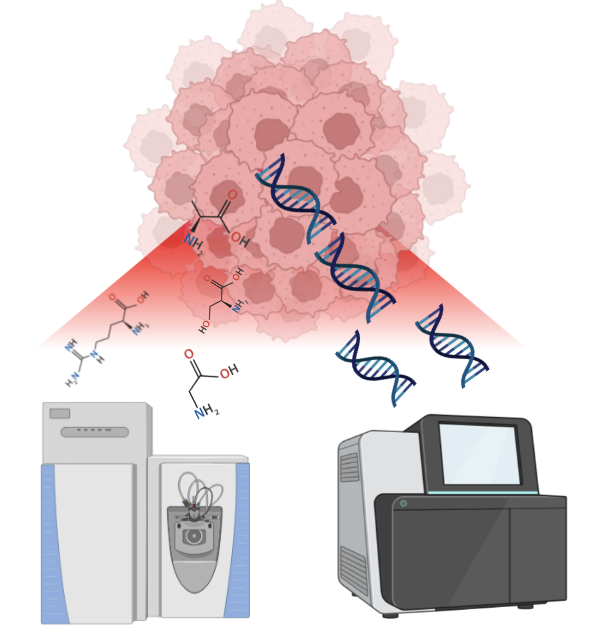Metabolic transformations in human disease
Research in the Ducker group is focused on understanding the biochemical, cellular and organismal changes in metabolism that enable disease.
Research Focus Areas
-

New applications of isotope tracing technology
-

Identifying altered metabolic fluxes in animal disease models
-

Integrating genetic and metabolic tools to exploit tumor nutrient dependencies
New applications of isotope tracing technology
Isotope tracing technology enables the quantitative measurement of metabolite fluxes and is routinely used to analyze the dynamic metabolism of polar metabolites in cell and animal systems. Altered lipid metabolism plays a deciding role in many human diseases, but application of isotope tracing methodologies to study lipid turnover are still in their infancy. Focusing on hepatocellular carcinoma as a model system, we are developing tools to comprehensively quantify specific lipid pathway production and consumption fluxes with the goal of identifying novel targetable nodes for future therapies.
Identifying altered metabolic fluxes in animal disease models
Animal models of complex human diseases such as diabetes and heart failure are necessary to recapitulate the complex physiology of the disease. We are interested in how metabolism both within specific organs and within the entire organism is altered in a disease state. We utilize stable isotope tracers to investigate questions such as how is glucose utilization affected by heart failure, how is amino acid homeostasis perturbed in the diabetic liver, how does one-carbon metabolism affect lipid synthesis in cancer? Together with our close disease specific collaborators, we seek to integrate genetic data from patients and animal models with relevant metabolic flux data to understand the processes driving these disease states.
Integrating genetic and metabolic tools to exploit tumor nutrient dependencies
Tumors rely on external nutrients to fuel their growth. Amino acids are frequently limiting nutrients for tumor growth and common patterns of utilization exist across cancer types. In fact, many tumors develop mutations that streamline their metabolic network leading to an absolute dependency on exogenous amino acids. We are integrating metabolic characterizations of tumor metabolism with CRISPR enabled genetic screening tools to identify novel vulnerabilities that arise in tumors with nutrient dependencies.
Core Methodology
To study metabolism, our lab relies on isotope-tracing mass spectrometry. We utilize a Thermo Electron QExactive Plus instrument for our metabolic mass spectrometry. This high resolution Orbitrap based instrument enables robust measurement of isotopically labeled nutrients from cell culture samples, serum, animal and human tissues. We rely heavily on isotope tracing to inform us about the specific chemical transformations that our occurring in our system of interest and these measurements enable the robust quantification of metabolic fluxes.
We are always looking for motivated and enthusiastic people excited about mass spectrometry and metabolism to join our lab.
What we study
This three minute animation describes our research in the Ducker Lab.

